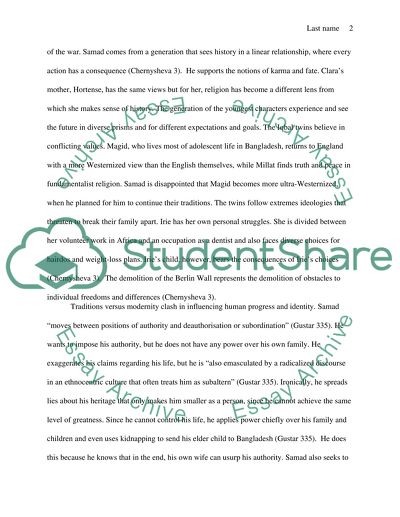Cite this document
(“Zadie Smith's White Teeth Identity and Progress Essay”, n.d.)
Retrieved de https://studentshare.org/english/1452302-white-teeth-by-zadie-smith
Retrieved de https://studentshare.org/english/1452302-white-teeth-by-zadie-smith
(Zadie Smith'S White Teeth Identity and Progress Essay)
https://studentshare.org/english/1452302-white-teeth-by-zadie-smith.
https://studentshare.org/english/1452302-white-teeth-by-zadie-smith.
“Zadie Smith'S White Teeth Identity and Progress Essay”, n.d. https://studentshare.org/english/1452302-white-teeth-by-zadie-smith.


